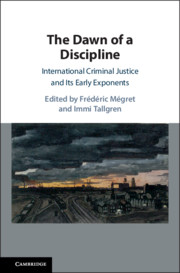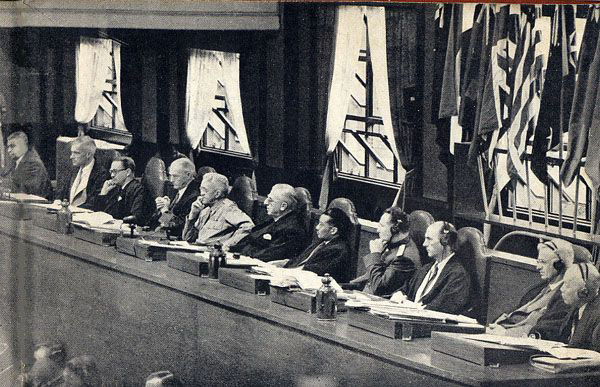History and International Criminal Justice
ESIL Interest Group on International Criminal Justice
ESIL Interest Group on History of International Law
Online Roundtable
Wednesday 23 June 2021, 3-5pm CEST
Within the field of international criminal justice, appeals to history have been made from multiple perspectives. There are, in fact, at least three ways in which the relationship between history and international criminal justice has been conceived. First, histories of international criminal justice have sought to construct narrative accounts of the origins and trajectory of the field. Such accounts range from evolutionary progress narratives of the field’s institutional development to more critical perspectives that seek to disrupt the field’s conventional assumptions and framings. A separate body of literature – focused on international criminal justice in history – has sought to surface the influence of international juridical practices on the course of history within particular societal contexts. Studies within this strand of scholarship have revealed, for example, how international criminal justice institutions can become implicated in governmental projects within the domestic political sphere, including the delegitimization of political rivals or the legitimation of military campaigns against adversaries. Thirdly, growing attention has also been directed towards international criminal courts as sites of historical production. Focusing on the narrative and expressive functions of international criminal courts, explorations of history in international criminal justice have sought to reveal how history has been constructed and contested by different actors participating in and/or impacted by international criminal processes in different institutional contexts.
This online roundtable aims to put into conversation four scholars who have recently published monographs that engage in different ways with the relationship between history and the practice of international criminal justice. Building on insights from their research, the roundtable will examine this relationship from a diversity of angles, including a critical exploration of what the historical narratives constructed by international criminal courts reveal about their emancipatory limits and potential, how law’s relationship to capital might help make sense of corporate human rights and war crimes trials across space and time, the extent to which emotionally-charged rights discourses and anti-colonial histories shape conceptions of justice, and whether a ‘responsible history’ normative framework for international criminal courts is possible.
Chair: Zinaida Miller, Assistant Professor of International Law & Human Rights, School of Diplomacy and International Relations, Seton Hall University
Speakers: M. Kamari Clarke, Distinguished Professor of Criminology and Sociolegal Studies, The University of Toronto (and UCLA - on leave)
(author of Affective Justice: The International Criminal Court and the Pan-Africanist Pushback (Duke University Press 2019) – available here)
Grietje Baars, Reader in Law & Social Change, The City Law School, City, University of London
(author of Law, Capitalism and the Corporation: A Radical Perspective on the Role of Law in the Political Economy (Brill 2019/Haymarket 2020) – available here and here)
Aldo Zammit-Borda, Reader, The City Law School, City, University of London (from August 2021)
(author of Histories Written by International Criminal Courts and Tribunals: Developing a Responsible History Framework (Springer 2020) – available here)
Barrie Sander, Assistant Professor, Leiden University – Faculty of Governance and Global Affairs
(author of Doing Justice to History: Confronting the Past in International Criminal Courts (OUP 2021) – available here)
Those interested in attending the online event should register by sending an email to esiligicj@gmail.com providing your name, last name and institution, by 20 June 2021. A Zoom link will be circulated to those registered shortly before the event.









